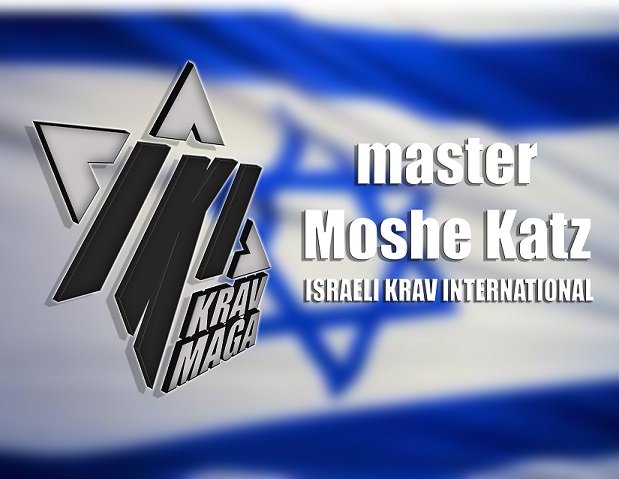- Home
- Krav Maga Blog
- Krav Instructors
- Train in Israel
- Tour Train Israel
- Krav Shop
- DVD
- Kickboxing
- IKI Near Me
- Seminars
- IKI Membership
- On-Line Training
- Krav Maga Training
- Testimonials
- History Krav Maga
- Instructors Page
- Past Blogs
- Spanish
- Italian
- Certification
- Contact
- Holland Seminar
- Vienna Seminar
- Poland Seminar
- Italy Seminar
- Belt Requirements
Appoint Righteous Judges
BY MOSHE KATZ
CEO
ISRAELI KRAV INTERNATIONAL
September 5, 2024, Los Angeles, California, USA
This week we read in the weekly Torah Portion Shoftim, Judges.
"Judges and officers shalt thou make thee in all thy gates, which the LORD thy God giveth thee, tribe by tribe; and they shall judge the people with righteous judgment. You shall not tilt the judgement, you shall not recognize any faces, and you shall not take a bribe, for bribery blinds the eyes of the wise and distorts the case of the just."(Deuteronomy Chapter 16, verses 18-19)
Society needs order, rules, wise men who can pass judgement and others to enforce the rules. Otherwise society falls apart. Sadly, man cannot be relied upon to control himself. Without supervision he will steal, rob, manipulate, harm, maim and kill his fellow man. Of course, even with strict supervision all this still happens. There are enlightened communities, such as where I am fortunate to live, where no police is necessary to regular internal matters, but there are still problems that come from the outside.
The Bible, as a guide to community building, offers some insight on how people can live together and not feel disgruntled or cheated. You shall appoint for yourself judges and police throughout the land.
First, it is us, we the people, who must choose our judges and police. They must answer to us, as well as to a higher power. They work for us and are to be for our own benefit, otherwise they must be replaced. Now here is an important point that is not evident upon the first simple reading. Rashi, Rabbi Shlomo Yitzhaki of France writes, In all your gates, i.e. in every city (ir). The term the Bible uses is Gates, appoint judges at your gates, and as Rabbi Shabtai Bass of Poland and the Nethelands points out, "each city had a gate". Rashi also points out "tribe by tribe" each city should have its own judges, and each tribe should have its own judges. Rabbi Shabtai Bass, "and if there was one city and it had in it two different tribes living there, it requires two judges. Likewise, if one tribe was spread out over several cities a judge is required for the tribe in each city." i.e. each tribe in each city gets its own judge. Two tribes in one city, two judges. One tribe in two cities, two judges.
And now my thoughts.
Why so many judges? I feel the answer is that the judges must be very sensitive and take into account the individuality of the people involved. To judge someone in New York, you must understand New York. To judge someone in a small town, you must understand small time life. And a tribesman living in one area is influenced by his surroundings. Therefore, a Levite living in Tel Aviv might have a different culture than a Levite living in the holy city of Jerusalem. A Benjaminite living on the border of Syria might have a different set of circumstances and lifestyle than a Benjaminite living in the center of Israel. All these subtleties must be taken into account. We cannot judge another until we walk a mile in their shoes.
I believe the hidden message here is to take everything into account, not to assume we understand the situation unless we take the environment and all the surrounding factors into account. Sensitivity to the circumstances of the individual case.
The text continues with Lo takir panim which is translated as do not show any favoritism. Now seems rather obvious. The judges are instructed to be just and fair, not to take bribes, not to tilt the judgement, etc. so why is there a need to say, Don't show favoritism? This should be rather obvious.
I think the answer is deeper and more profound. The text literally says do not recognize faces. Let us assume the judge is fair and honest as can be. Now the next two litigants walk in, and one just happens to be an old friend, perhaps a classmate. It is natural that he should show a facial expression of, "oh, old friend, wow, I know you!" even if he has every intention of not showing any favoritism in the court case. So here is my thought, assuming the judge is totally fair and honest and in fact conducts the trial in an honest and objective way, the "non recognized face" person might feel at a disadvantage. Even if the judge proves to be totally objective the non-recognized face will feel at a disadvantage, he may feel, "I have already lost the case, what is the point?", the mere recognition of the face of his opponent by the judge might be enough to cause him to lose confidence.
That loss of confidence may cause him to lose the case.
Thus, it is not that the judge will be dishonest, not that the judge will show favoritism, but that simply by recognizing an old friend, or an important person, the opponent may lose confidence, and thus, unfairly lose the case. The Torah is sensitive to his minute detail of human psycology.
May we learn from this to be fair, objective and honest in all our dealings.

Moshe Katz, 7th dan Black Belt, Israeli Krav Maga. Certified by Wingate Institute. Member Black Belt hall of fame, USA and Europe.
Understand the Israeli Fighting Mentality - Israel a Nation of Warriors by Moshe Katz

What is the cultural background of Krav Maga? What makes it unique? What makes the Israeli military so effective? Why are Israeli security systems used all over the world?
What are the Biblical origins of Krav Maga and who was the first Krav Maga instructor?
What weapons and military strategies did our Biblical ancestors use?
How has Krav Maga developed in Israel and what are its goals?
All that and more in this unique book.
Start Your REAL Training TODAY
Or is someone coming to save you?
IKI Krav Maga online distance training - Leading to ranks and certification.
Tour and Train Israel Experience
Personal Training - If you are interested in personal Krav Maga training please contact us on the form below.
